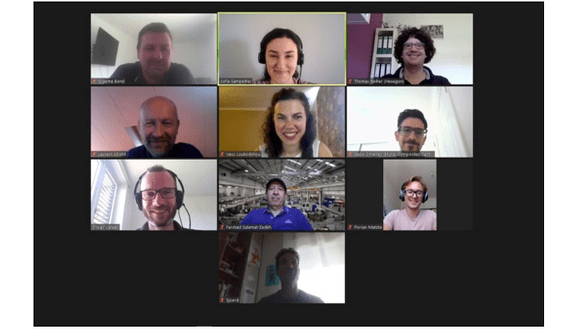Wed, 30 June, 2021
PADICTON project partners have recently delivered a successful Technology Approach Review based on the relevant objectives of the project, namely:
- Detailed material characterisation of additive manufactured parts (AM)
- Development of a high fidelity reference process simulation method within Digimat-AM for fused filament fabrication (FFF) and selective laser sintering (SLS) based on material characterisation parameters
- Development of a rapid process simulation within Digimat-AM for both FFF and SLS processes
The TWI-coordinated project is funded as part of the Clean Sky initiative under grant agreement number 864819. The collaborative consortium also includes topic manager Airbus, Brunel University London, FDM Digital Solutions and e-Xstream Engineering.
About PADICTON
The PADICTON project aims to develop accurate and functional distortion prediction models for additive manufacturing (AM) of polymeric and composite parts that can be utilised in conjunction with other design tools to produce parts adjusted to account for distortion effect. The efforts will focus on FFF, with or without fibre reinforcement, and the SLS EOS P810/P396 process.
Currently, AM composite components are designed using established “rules of thumb” and “trial and error” approaches to minimise effects of process-induced distortion. Despite these measures, induced distortion in AM parts is still a major problem, which can incur substantial costs both in initial part development and process tuning, and during later assembly of subsystems. The risks related to production time and cost involved with such distortions are one major barrier to manufacturers using weight saving composite parts more often in the design of advanced integrated structures.
The models and methodologies developed within PADICTON will provide a means to accurately and quickly predict induced distortions, and to pro-actively design to minimise their occurrence. This will result in a lower level of risk in designing integrates and complex shaped AM components and reduce the cost of designing and manufacturing optimised polymeric components.
If you want to know more about the project visit the website https://www.padictonproject.eu/ or follow us on LinkedIn https://www.linkedin.com/in/padicton-project/
This project has received funding from the Clean Sky 2 Joint Undertaking under the European Union’s Horizon 2020 research and innovation programme under grant agreement No 864819.
